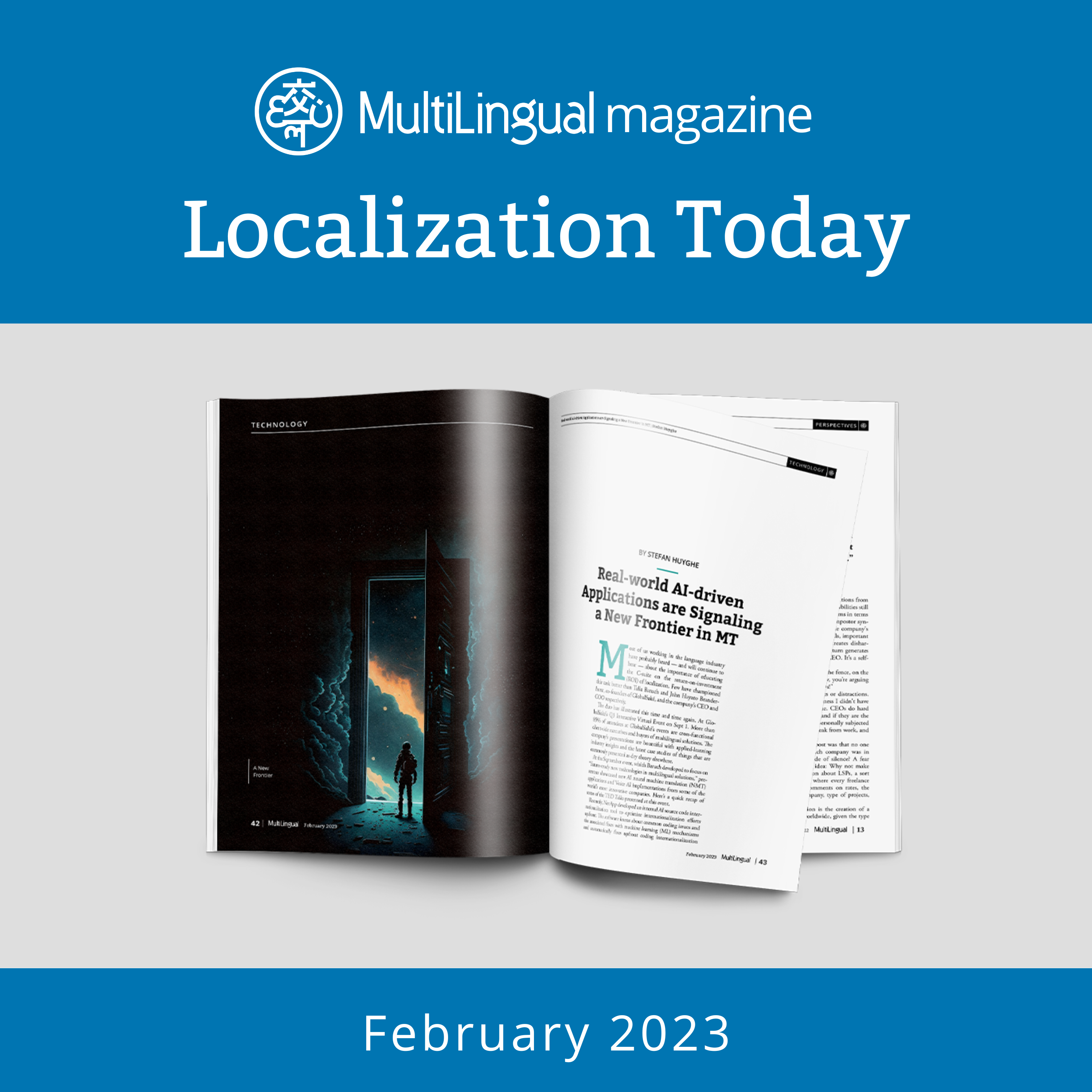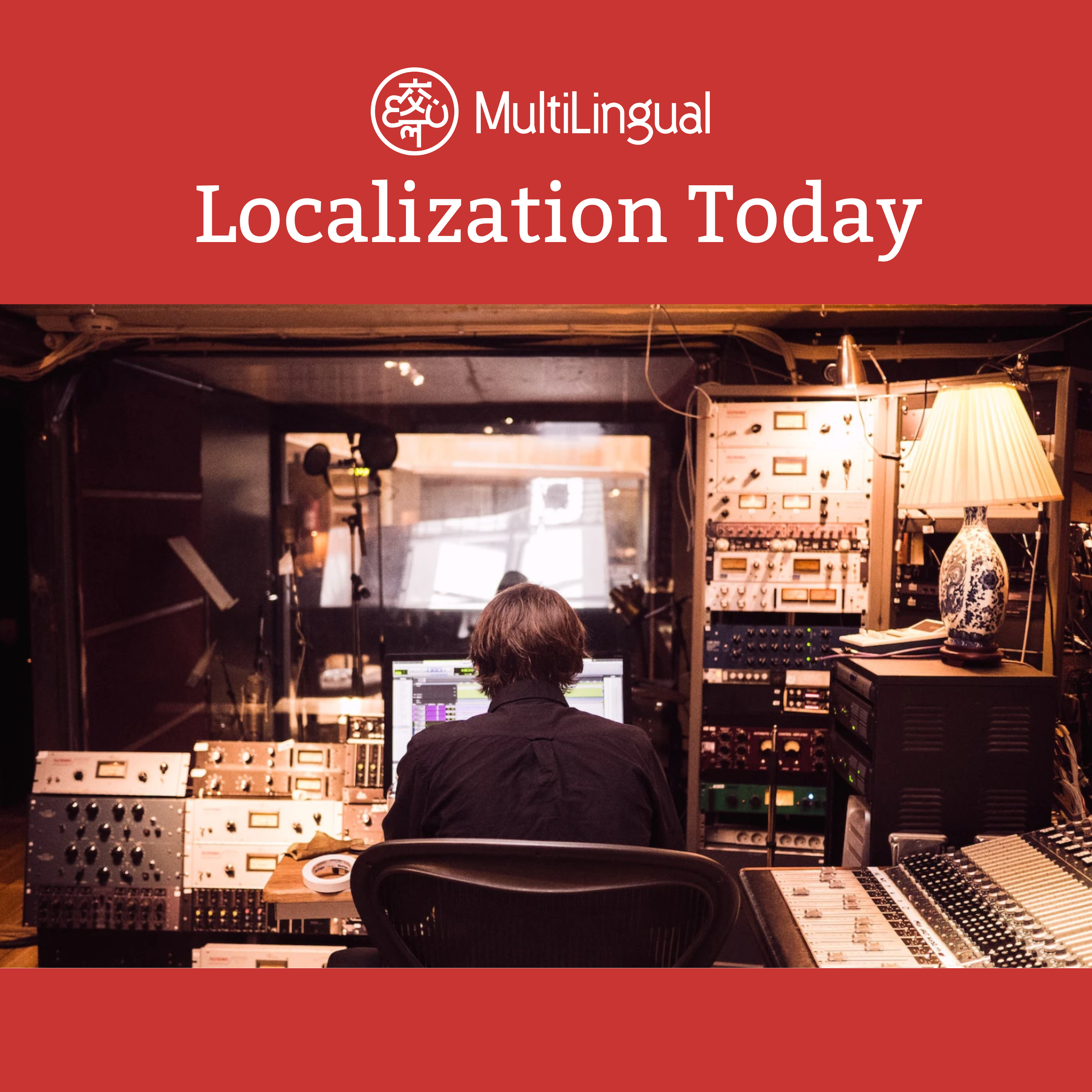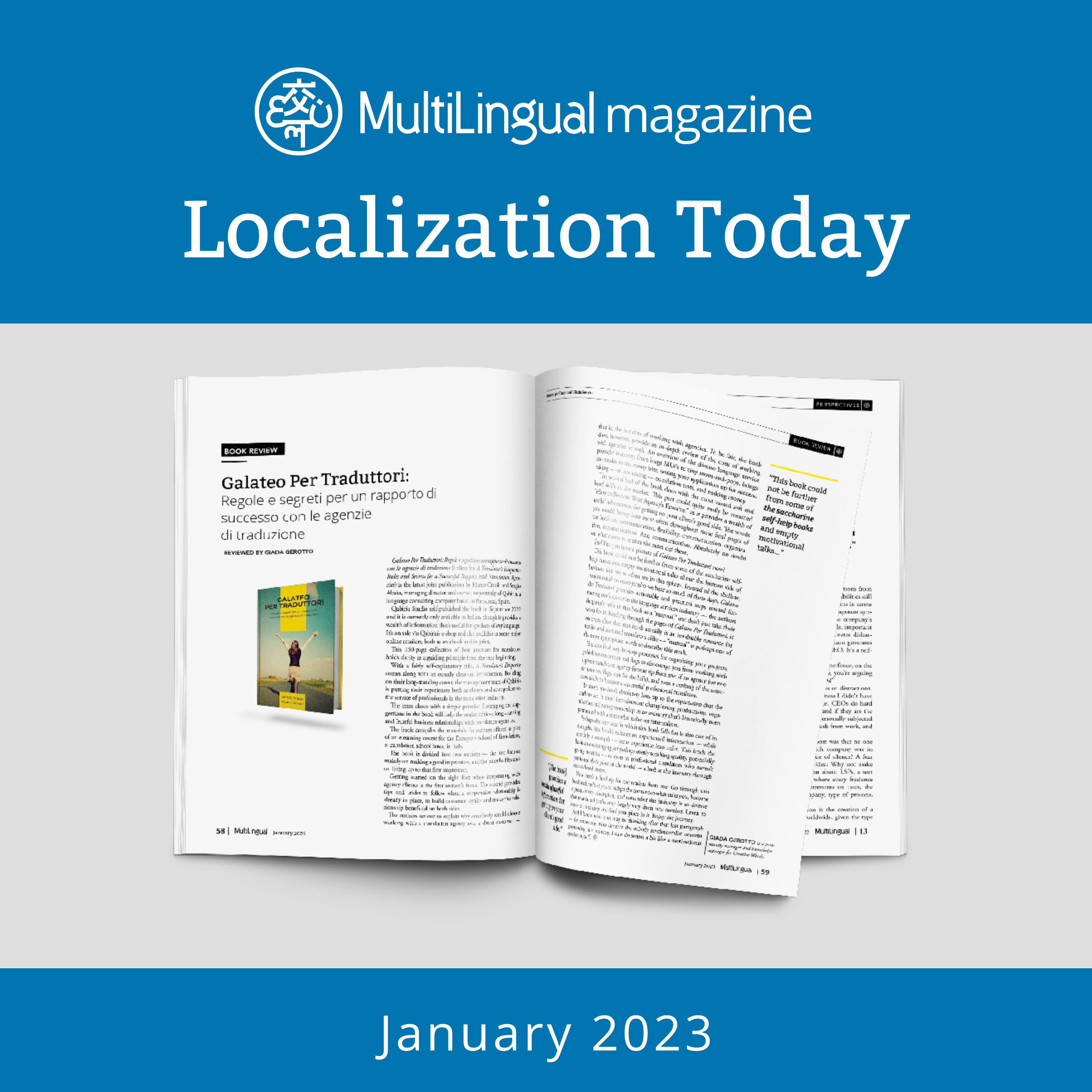Episode Transcript
[00:00:00] Speaker A: The following is my conversation with Andrea Koller, CEO of Lingo Systems. We talk about how software development has transformed the industry in the past few years and their approach to innovation and custom software development for companies in the language industry. Enjoy.
[00:00:17] Speaker B: My name is Andrey. I'm the founder and managing director of Lingo Systems.
And our company provides technology services for companies within the language industry.
And my job is basically to further develop our company, to grow the business, to make our customers and our employees happy. I founded the company many years ago as a software development company, and we served companies within many different industries. And then around ten years ago, by accident, we won over a company from the language industry, which was a swiss language service provider. And we worked for them for quite a while.
And with that customer, we started to gather information about the industry. We learned a lot about the industry, about language processing, language management, and we found that field quite interesting.
And then we started to look out for other projects in that industry.
And so we were gathering more customers. And then, step by step, this business grew a lot. And then some years ago, we decided to focus on that industry, and lingo systems was born. There are a lot of companies providing really excellent it services. They provide software services for companies working in the industry. What we are doing is to provide only custom made solutions. So we are helping companies to integrate those products that they can buy on the market.
Often it is the case that those companies have older IT systems which need a modernization or they need integration. They need integration with systems from their clients.
They need process automation. They need a better quality.
And that is where we come into the game. So we are helping our clients with analyzing where they are within their IT landscape. So what it systems do they have? What are the current issues? What are the future plans? How does the company want to develop? And then we help them with developing an IT roadmap. So what are like the next steps in developing those systems? Which systems should be shut down or replaced by maybe newer systems? And we help them to develop what they need for their business. So typically, we are working for companies who want to make a difference in their business, and they need an IT system support that helps them to make that difference. I would say if we look at the LSP segment, those companies are constantly thinking about how to decrease costs, how to speed up processes, and how to increase quality.
And those are the typical problems which result in changing it systems and how people within the lsps work with those it systems. So that is something we work on often in projects. Then, of course, Genai is a big topic. Everybody is thinking about how to include Genai in their processes in order to gain something.
And if you want to do that, you typically need to have your data in place in centralized, in a good quality. And we are helping companies to create this basis in order to be able to work with genai solutions in the next step.
Honestly, I think that technology will play a more and more important role in that process. So it's obvious that technology can do a lot of things that some years ago were only humans able to do.
On the other side, I think that a lot of new fields open up for translation and localization that we weren't aware of in the last years. So I think for translators there will be a big change in the way they work and what the subject of their work is.
But I'm quite sure that within the next years there will be a lot of things to do also for humans, for translators, but maybe in different fields, maybe in a more specialized way.
Yeah, that is how we see the things in the moment.
In the moment we see a lot of job openings around AI positions whatsoever. Specifics there are. So this is something that we can see right now. So if you would look for a new job, it's good to build up skills in that domain. However, I am honestly not sure how sustainable those new job positions are. So I'm not sure if we will see that in that large amount in, let's say five or six years, because I think using Genai will be a commodity, so it will be integrated in products we are using right now. We need those job positions because we do the work on our own, the integration work. But I think it will be more and more easy to use these solutions.
And I think we.
I'm not sure if those positions will stay for a longer time. So it's quite difficult to say. I honestly can't tell you about new job positions which are away, let's say, more than five years. I just. I have no idea.
It's an amazing development right now.
Yes, sometimes we see that as a software development company, we were quite used to those job positions, and I think the language industry discovered those positions and those skill profiles in the last years, although they were quite well known outside the industry. So for us it's not a new development, but maybe for some companies in the language industry, there might have been some new job positions in the last years. Whenever anybody has a technological issue, wants to develop their it systems, further wants to integrate systems, I think we are a good partner. So everybody is welcome to have a chat with us on this.
[00:07:20] Speaker A: And that was our conversation with Andre Kohler, CEO of Lingo Systems. My name is Eddie Arrieta, CEO of multilingual magazine. Thanks for listening.


